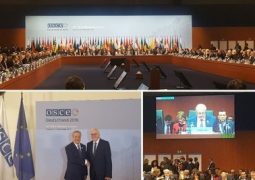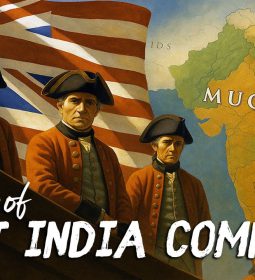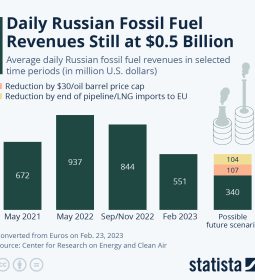Oil-Output Cuts Proceeding Faster Than Planned

VIENNA—The Organization of the Petroleum Exporting Countries and Russian officials said Sunday they were making good progress on their pledges to cut back crude-oil production and raise global prices.
Saudi Energy Minister Khalid al-Falih said OPEC’s 13 nations and 11 producers outside the cartel had made collective cuts totaling 1.5 million barrels a day since agreements were struck in late November and early December. Oil prices have risen nearly 20% since those deals were made, despite widespread skepticism over whether OPEC and other producers would follow through.
Mr. Falih also brushed off a new energy policy statement from the Trump administration, which said the U.S. would seek independence from OPEC but maintain close relationships with its Persian Gulf allies to fight terrorism.
“We in Saudi Arabia look forward to work closely, cooperatively, constructively with the incoming Trump administration, especially in the area of energy,” the minister said.
The estimates being handed out on Sunday morning were preliminary and the officials didn’t provide other important details, such as the current collective output of OPEC or whether Saudi Arabia was shouldering a larger load of cuts to make up for other members that aren’t complying.
The cuts announced Sunday don’t take into account rising production from OPEC members excepted from the output cuts, including Libya, where crude flows reached a three-year high this month.
The estimates were released as OPEC convened its first meeting to monitor compliance with its production-cut regime. Not all of OPEC’s members were present—just Saudi Arabia, Qatar, Venezuela, Kuwait and Algeria, and nonmembers Oman and Russia.
The countries announced breakthroughs, including an additional monitoring committee that will include Saudi Arabia and meet every two months. Compliance for non-OPEC producers will be determined by an examination of data supplied by each government and an assessment of other sources such as shipping trackers, traders and pricing agencies.
The meeting was held amid widespread skepticism in the oil market that OPEC and its new allies will follow through on their pledges to cut what amounts to about 2% of global oil supply from the market.
Several OPEC members, including Venezuela, are going through severe economic contractions after over years of depressed oil prices, making production cuts potentially economically unfeasible and politically dicey as prices rise.
The doubt has helped put a cap on oil prices, which have hovered between $54 a barrel and $57 a barrel for international benchmark Brent crude since the agreement. Most OPEC members need higher prices to balance their national budgets and pay for their social-welfare programs.
—Summer Said contributed to this article.
Write to Benoit Faucon at benoit.faucon@wsj.com
- Previous Taiwan Fears Becoming a Pawn in Donald Trump’s Game
- Next Malay nationalist party Perkasa proposes life cntences for corruption
















